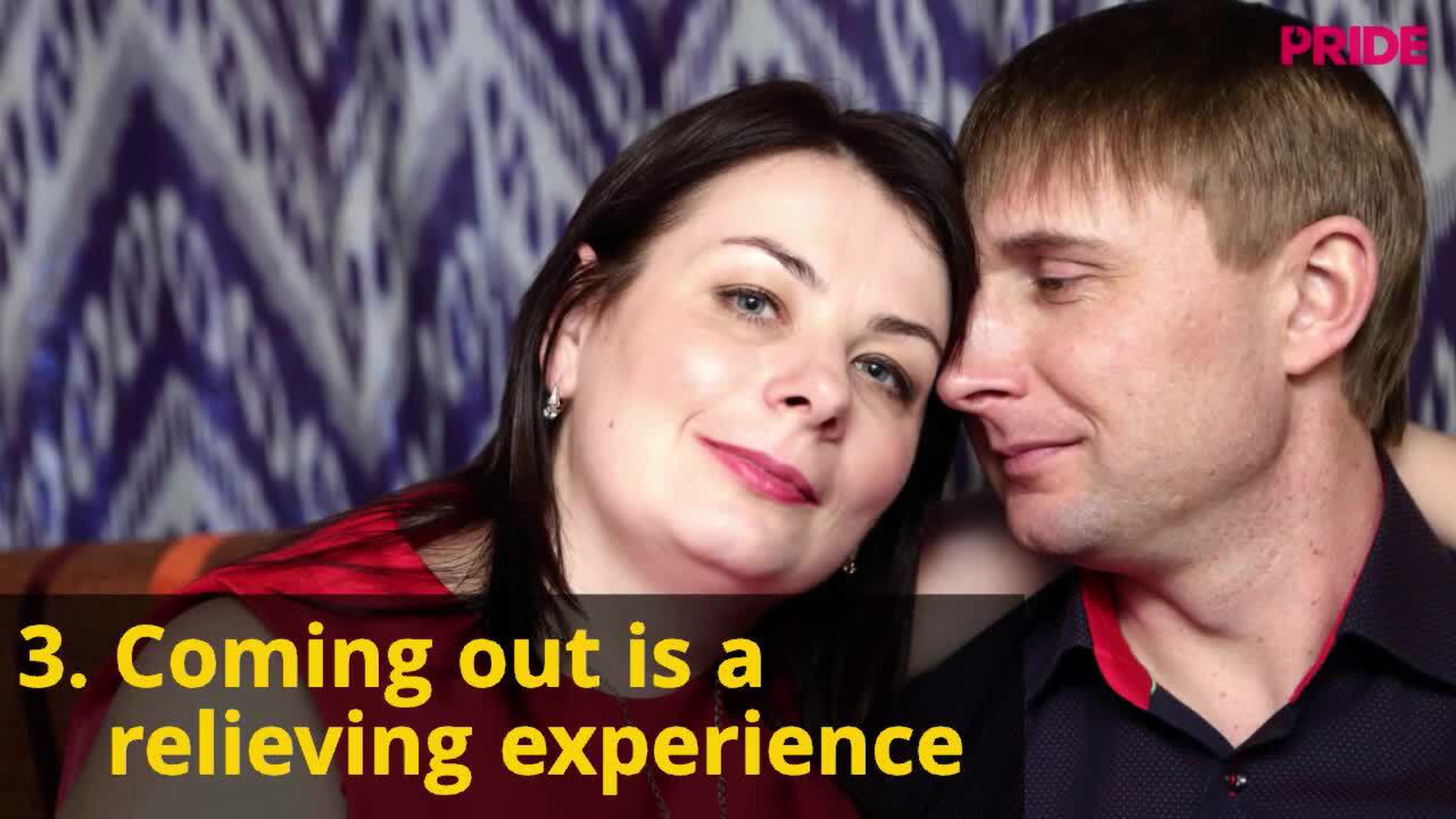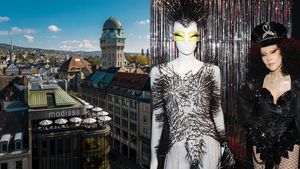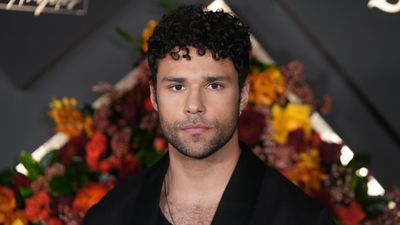Research conducted by Eric Schrimshaw at the University of Columbia revealed something major about bisexual men who don’t come out as bisexual to their female partners, family members, and friends: they don’t disclose their sexuality because they’re unsure of their identity (bisexual men aren’t "confused," liked stereotypes suggest). On the contrary, though, closeted bisexual men are aware they’re bisexual and want to continue having sexual and emotional relationships with both men and women, but fear stigmatization and ostracization from their communities.
All of this is to say that you’re not alone. You’re not alone in being closeted, and when you decide to come out, there is a vibrant bisexual community waiting for you. So for those of you struggling with coming out as bisexual, here's some advice:
1. Remember your identity is a journey
Your identity can and most likely will change over the course of your life. You’re no longer stuck with one label. I, for one, identify as bisexual, pansexual, and queer. I’ve met many women who identify as lesbian even though they date men. The power in labels is that they allow you to become a part of a community. So while labels are daunting, they’re not permanent. Don’t feel that you have to commit to anything forever.
2. The bisexual community is thriving
There is a bi community, and when you come out as bisexual, you will meet more bi people. When I was in college, I didn’t know a single bisexual man, but after graduating and coming out as bisexual, I met so many bi guys. We’re everywhere. You just don’t know it because most people assume that a man dating another man is gay, and a man dating a woman is straight. But just like you, they may indeed be bisexual.
3. Coming out is a relieving experience
This doesn't only pertain to bisexuality. Being closeted in any way has adverse psychological effects. But while people may reject you when you come out, you’ll learn who your real friends are. You can start surrounding yourself with the people who love and embrace you for who you are, instead of hiding yourself from the people you don’t think will accept the real you.
4. Come out confidently and proudly
[iframe https://giphy.com/embed/hsUfft7O4K6E2FrC3B allowfullscreen="" class=^{{"giphy-embed"}}^ frameborder="0" height="480" width="480"]
Even if you’re not 100 percent sure, pretend you are. Here’s why: if you show any hesitation, people will dismiss your identity, and you don’t want to have to deal with that nonsense. If you say, "I think I’m bisexual," people will say you’re confused or try to tell you you’re gay or straight. However, if you say it confidently, people are more likely to believe you. This shouldn’t be the case, but sadly, it is.
So say it like you mean it. Say it like you’re positive. Also, say it in a way that’s not a big deal. You don’t need to say, "I have something important I need to tell you." You don’t have cancer. You don’t want people to treat you like you do have cancer. You just like multiple genders. The less of a deal you make it, the less of a deal it becomes.
5. Bisexuality is a blessing
Being bisexual may feel like a curse, but at the end of the day, I couldn't tell you how lucky we are to be born bi. Bisexuality has changed the way I view the world. I no longer see it in black and white. It’s taught me how to empathize with others. It’s taught me to stand up for other marginalized groups. It’s allowed me to have fulfilling relationships with people of all genders. Being bisexual is the best thing that has ever happened to me. And once you’re open and honest and accepting of yourself, I bet it’ll be one of the best things that’s happened to you, too.



































































